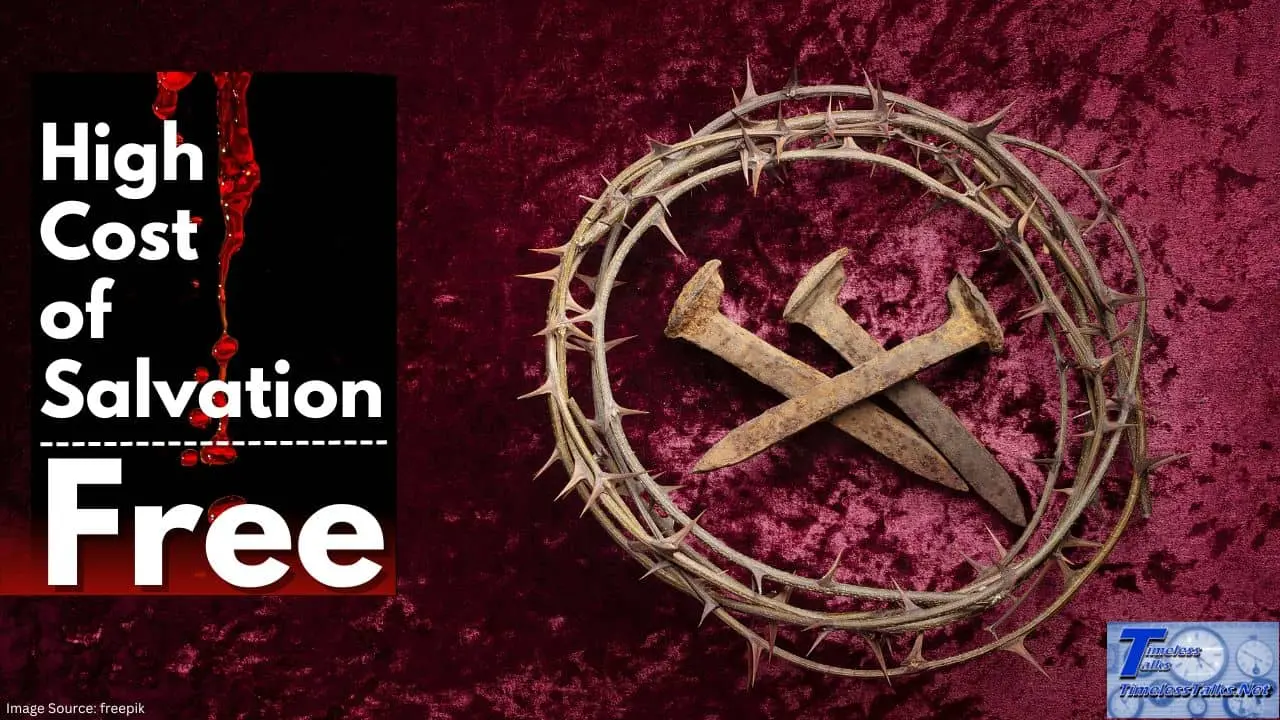High Cost of Salvation: Free
Written by John Ratliff
You can:
- DOWNLOAD offline on your computer/tablet/phone as a PDF file and read it anytime, OR
- Use the CONTACT LINK above (under Services) to request your collection be sent to you via USPS. This will REQUIRE you to include your mailing address (U.S. only).
The High Cost of Salvation: Free
INTRODUCTION
Did you know that the Bible never records Jesus using the word “grace”? It was used in reference to Him—(Luke 2:40; John 1:14, 16-17), but never used by Him. “And the Child grew and became strong in spirit, filled with wisdom; and the grace of God was upon Him.”—Luke 2:40. “And the Word became flesh and dwelt among us, and we beheld His glory, the glory as of the only begotten of the Father, full of grace and truth.”—John 1:14. “And of His fullness we have all received, and grace for grace. For the law was given through Moses, but grace and truth came through Jesus Christ.”—John 1:16, 17
Now, He taught it; He lived it: He just never said it. Then again, He said a lot about grace. Jesus entire ministry centered on compassion and grace to those who needed it, and to many who didn’t know they needed it. In fact several of the parables Jesus told, had grace as their central theme.
One of those parables is found it Luke 7:41-42. This short concise parable describes the wonderful grace of God more so than all words combined could ever express. Both men had a debt they could not pay. Yet, both men were forgiven.
That’s grace.
With our time this morning let’s explore this subject and as we do let us note the pinnacle of all passages concerning grace—Eph. 2:8. “For by grace you have been saved through faith, and that not of yourselves; it is the gift of God…”
BODY
SALVATION IS FREE
Paul simply says, “For by grace you have been saved…” The two debtors in the parable did not earn their freedom. Their obligation was canceled purely out of a gracious act on the creditor’s part. As someone once said, “Forgiveness is a river that flows out of a spring of grace.”—cf. Eph. 1:7; 1 Peter 1:18-19
That God can love us in spite of our sins is almost unbelievable. How He can forgive lifelong rebels is unfathomable.
Paul continues “…not of yourselves…” Forgiveness is not something we can purchase or earn. We are spiritually bankrupt—we have nothing with which to pay. To show grace is to extend favor to one who doesn’t deserve it and can never pay it back. One said it this way: When we work a forty-hour week and receive a fair week’s pay for our time—that is a wage. When we compete in athletics and receive a trophy for our performance—that is a prize. When we receive recognition for long service or high achievement in business—that is an award. When we are incapable of earning a wage, can win no prize, deserve no award—yet receive a gift anyway—that is grace.
Then Paul writes, “…it is the gift of God…” We cannot make salvation works-centered and man-centered. It is grace-centered and God-centered. There is no “do-it-yourself-and-get-the-glory” plan in Christianity. The emphasis is on what God does for us, not what we do for God. Why, because “grace is what we need, but do not deserve.”
God extending His grace to us is treating us like we never left in the first place. This is exactly what the father did for the lost son in Luke 15:20-24. As if he never left, he regained his place in the family (ring), his dignity (robe), his freedom (sandals), and his support (fatted calf).

